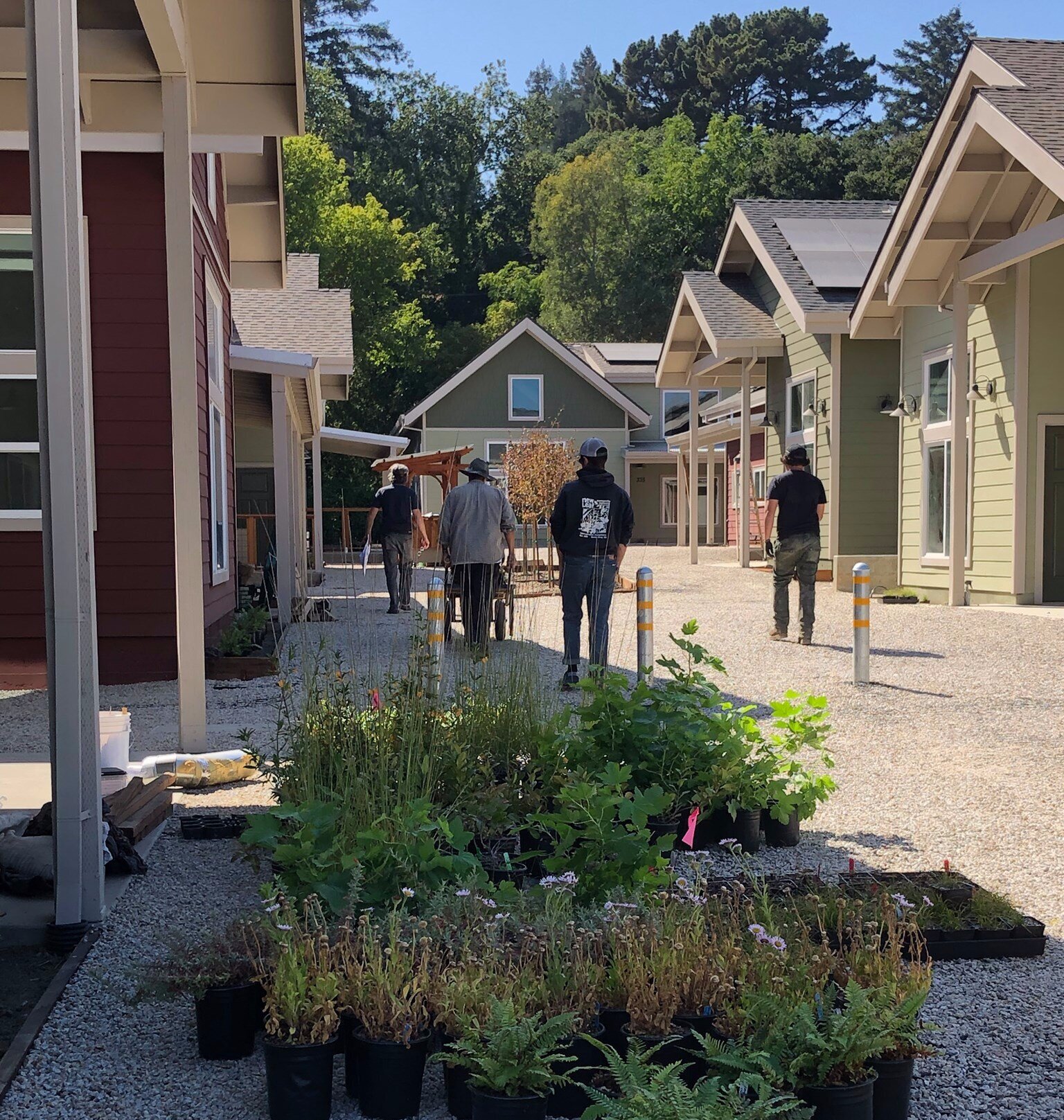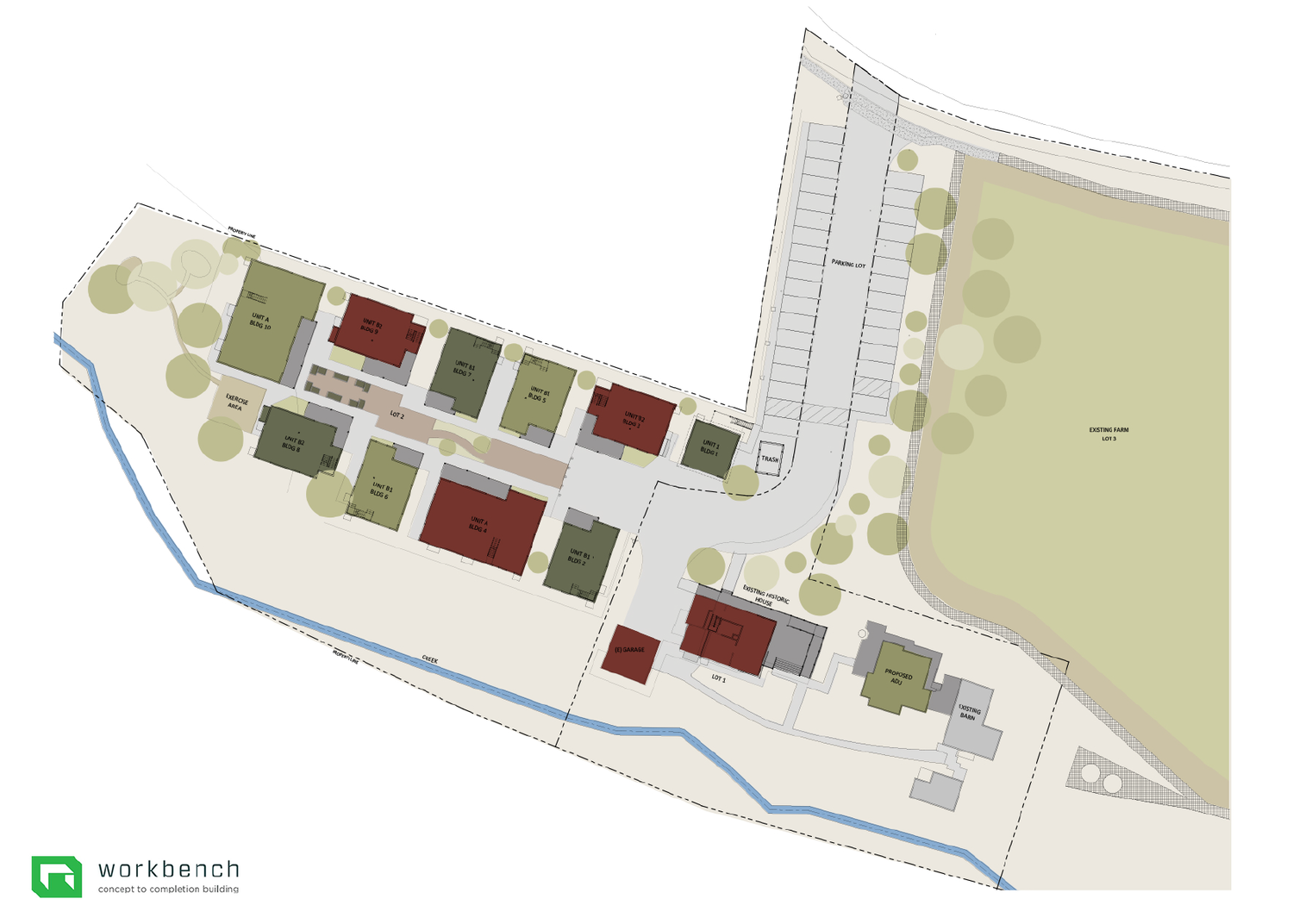A new housing development designed for the needs of adults with intellectual and developmental disabilities has opened in Santa Cruz, California. A group of families, incorporated under the name Coastal Haven Families, LLC, developed the project of 11 homes, which includes an existing historic farmhouse. It will house about 16 residents with I/DDs such as autism, epilepsy, cerebral palsy, and Down syndrome, as well as several families, students, and staff.
A new resident prepares to move in.
Preparing to add landscaping around the new homes.
The development is designed in the form of a mini-neighborhood, where front porches face a common outdoor area that facilitates social interaction. Parking is separate from the homes, allowing for a safe, calm pedestrian friendly environment, which is particularly important for those living with I/DD. Each home features barrier-free entries and wheelchair accessible bathrooms. The buildings are energy efficient, boasting green building materials, solar panels, heat pumps, fiber-cement siding, soy-based insulation and a permeable parking and pedestrian surface.
The LLC families purchased the 7-acre property in 2015 and have leased the majority of their land, 4 acres, to the nonprofit Common Roots Farm which operates an adjacent farm offering employment and resources for the local I/DD community. Apart from offering community programs, “We also want those living with or caring for someone with an intellectual/developmental disability to find respite here, and enjoy the connection with nature, animals and farming that Common Roots offers,” said Heidi Cartan, Executive Director.
Referencing the growing autism and I/DD housing crisis, Philippe Habib, the LLC manager, explained, “We are parents who have come together to solve a basic problem we all face: where will our children live, and how will they thrive, when we are no longer here to care for them?” Care for the residents will come primarily from a model called supported living, where residents can choose their own care providers, who are funded primarily through Medicaid programs. Residents retain full access to the community, and downtown Santa Cruz is walking distance from the property.
“Government programs to house adults with I/DD are exceedingly rare,” said Jill Escher, president of the National Council on Severe Autism. “It typically falls to the parents to provide the brick-and-mortar residences for their loved ones — and Medicaid does not cover housing. We desperately need vastly expanded subsidized housing and private housing options for this burgeoning population of young adults who are incapable of living independently or earning a living. Housing does not just magically materialize, these things must be carefully planned, and parents are not going to live forever.”
Working on the adjacent farm.




